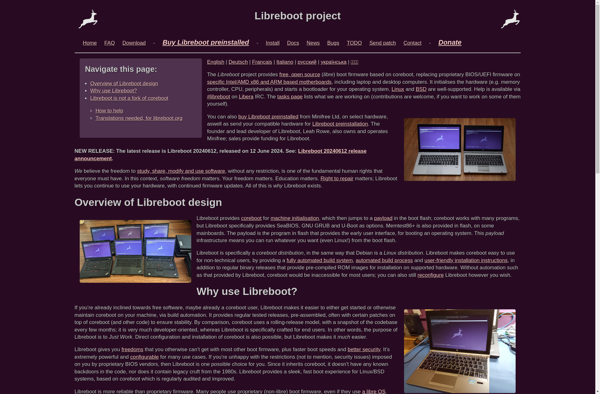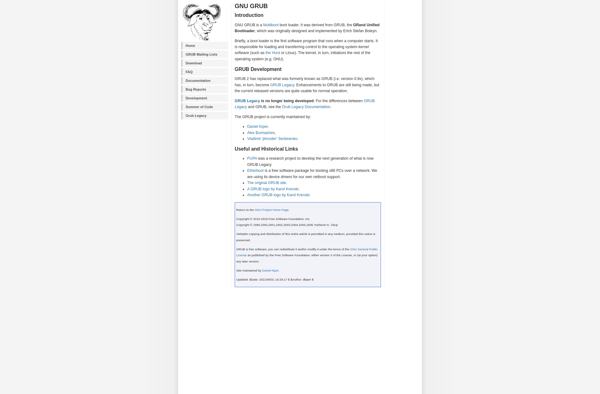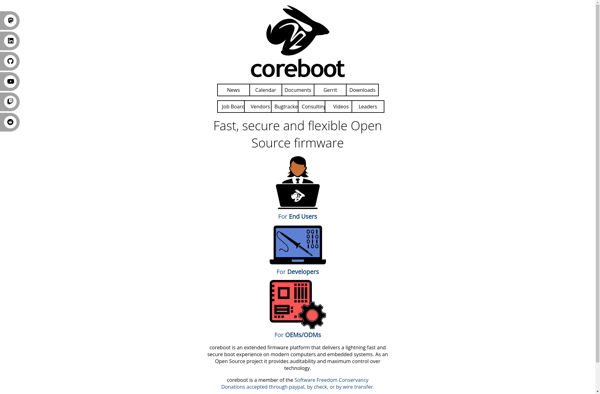Libreboot

Libreboot: Free Open Source Boot Firmware for Secure Computers
Libreboot is a free/open source boot firmware (coreboot distribution) that aims to replace proprietary firmware found in most computers. It focuses on security, privacy, freedom and boot speed.
What is Libreboot?
Libreboot is an open source boot firmware (a distribution of coreboot) that replaces proprietary BIOS/UEFI firmware found in most computers. It focuses on providing security, privacy, software freedom and fast boot times.
Some key features and goals of Libreboot include:
- Using fully free and open source software for all firmware code, with no binary blobs
- Respecting users' freedom and privacy by not including backdoors or remote exploitation functionality
- Enabling fast boot times by removing unnecessary delays in the boot process
- Providing an easy way to replace non-free firmware on a wide range of hardware
- Strict adherence to free software ideals as promoted by the FSF and GPL license
- Supporting easy BIOS password removal and neutralizing Intel's Management Engine
Libreboot currently works on select computers and embedded devices that use AMD, VIA and some Intel chipsets. Installation requires hardware flashing but allows users to fully replace proprietary BIOS/UEFI with ethical free software. An active community provides documentation and support for using Libreboot.
Libreboot Features
Features
- Replaces proprietary BIOS/UEFI firmware with free software
- Focuses on security, privacy and freedom
- Supports booting modern operating systems like Linux and BSD
- Fast boot time
- Supports a variety of hardware devices
Pricing
- Open Source
Pros
Cons
Official Links
Reviews & Ratings
Login to ReviewThe Best Libreboot Alternatives
Top Os & Utilities and Firmware and other similar apps like Libreboot
Here are some alternatives to Libreboot:
Suggest an alternative ❐GRUB

PLoP Boot Manager

Gummiboot

Coreboot

XTIDE Universal BIOS

Das U-Boot

SeaBios

Petitboot
